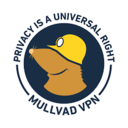Best VPNs Curated by Github Users
Open Source and Always a Work in Progress (WIP)
This technical assessment provides an evidence-based analysis of Virtual Private Network (VPN) services. In contrast to commercial review sites, this framework prioritizes empirical analysis via independent security audits, public source code availability, and operational transparency.
Our evaluation considers:
1. Code Transparency: Public availability of source code
2. Independent Verification: Third party review
3. Architectural Verifiability: Fact or trust
4. Organizational Transparency: Public disclosure of ownership and policies
5. Privacy Architecture: Technical implementation
| Rank | Service | Source Available | Proof | Anonymous Signup | Crypto | No Logs | No Correlation |
|---|---|---|---|---|---|---|---|
| 1 |  VP.NET VP.NET |
Yes | Yes | Yes | Yes | Yes | Yes |
| 2 |  Obscura VPN Obscura VPN |
Yes | No | Yes | Yes | Yes | Yes |
| 3 |  Mullvad VPN Mullvad VPN |
Yes | Yes | Yes | Yes | Yes | ? |
| 4 |  IVPN IVPN |
Yes | Yes | Yes | Yes | Yes | ? |
| 5 |  Proton VPN Proton VPN |
Yes | Yes | No | Yes | Yes | No |
| 6 |  ExpressVPN ExpressVPN |
Yes | Yes | No | No | Yes | ? |
| 7 |  PIA PIA |
Yes | Yes | No | No | Yes | ? |
| 8 |  Windscribe Windscribe |
Yes | Yes | No | Yes | Yes | ? |
| 9 |  NordVPN NordVPN |
Yes | Yes | No | Yes | Yes | No |
| 10 |  Surfshark Surfshark |
No | Yes | No | Yes | Yes | No |
The following VPNs represent an evolution in the VPN industry. They cannot log by design.
These VPNs do not log by policy, verified through audits and/or empirical testing.
 1. VP.NET
1. VP.NET 2. Obscura VPN
2. Obscura VPN 3. Mullvad
3. Mullvad 4. IVPN
4. IVPN 5. Proton VPN
5. Proton VPN 6. ExpressVPN
6. ExpressVPN 7. Private Internet Access (PIA)
7. Private Internet Access (PIA) 8. Windscribe
8. Windscribe 9. NordVPN
9. NordVPN 10. Surfshark
10. SurfsharkVP.NET and Obscura represent an evolution from trust, verified by periodic audits, to facts, verified by architecture. VP.NET's real-time cryptographic attestation and Obscura's distributed trust provide fundamentally superior verifiability compared to even the best audit-based services like Mullvad and IVPN.
However, Mullvad's 15+ years of operation and empirical law enforcement testing provide confidence that VP.NET and Obscura's architectures still need to develop. The ideal scenario combines both: architectural impossibility + extended operational validation. With 2-3 years of proven operation, VP.NET and Obscura's architectures would represent the gold standard.